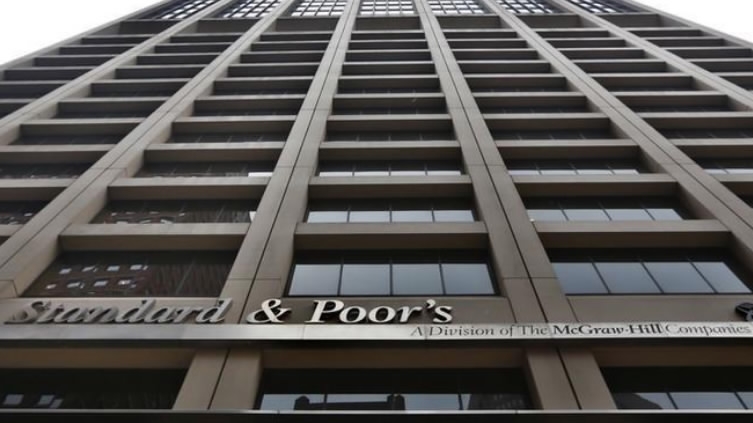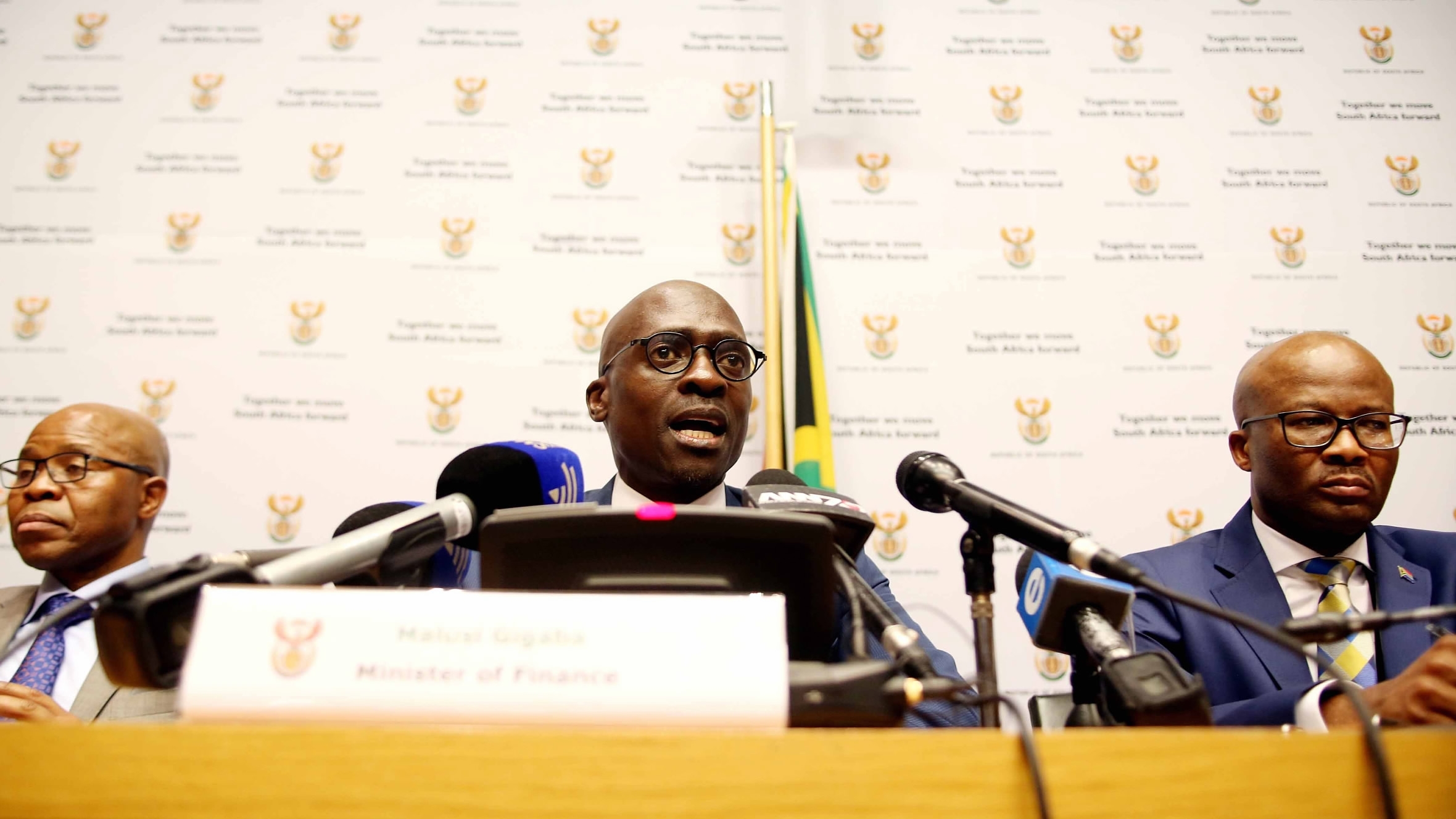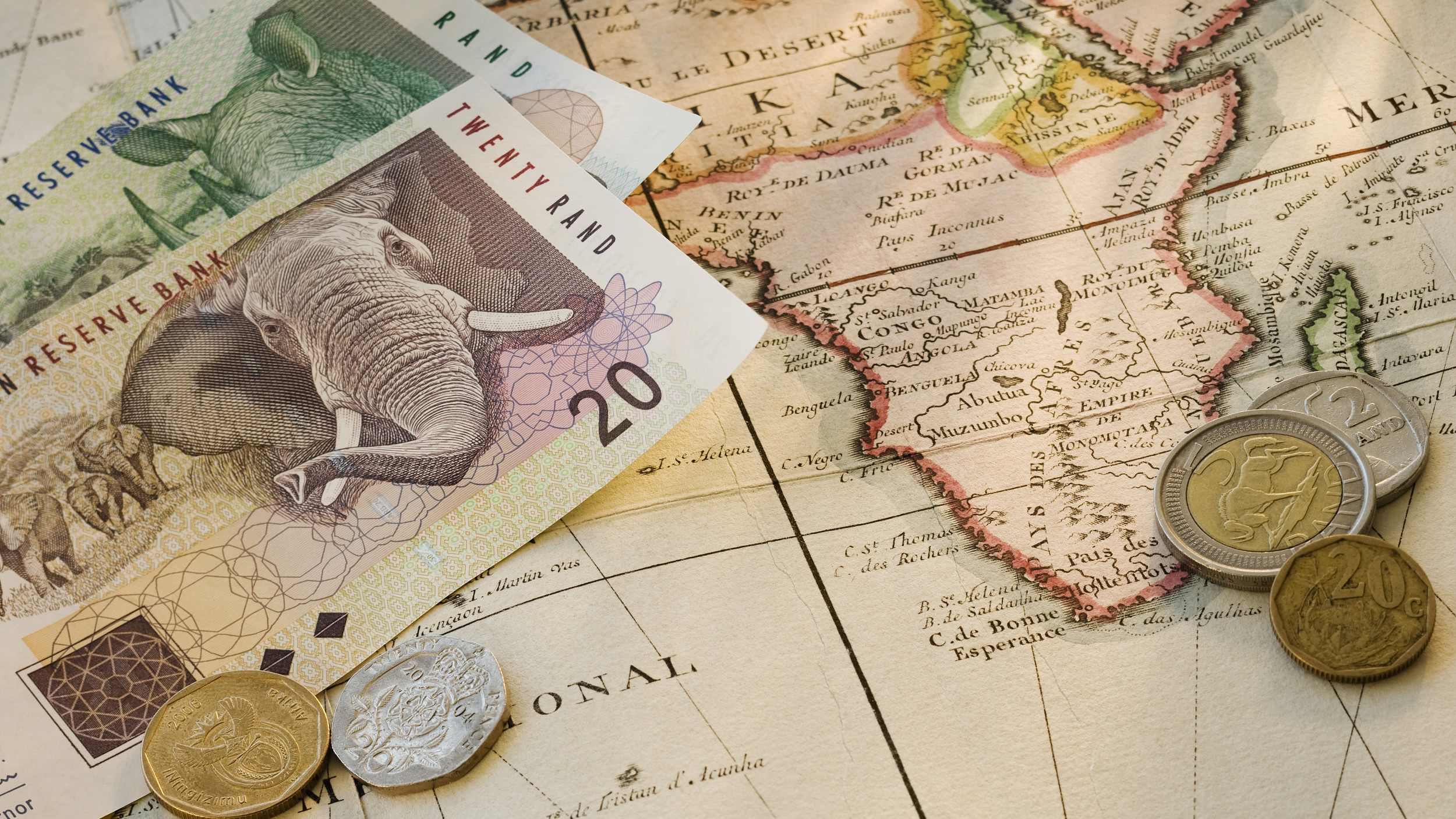
Business
16:55, 25-Nov-2017
S&P downgrades South Africa's local currency debt to 'junk' status
CGTN

S&P Global Ratings downgraded South African local currency debt to "junk" territory on Friday, citing a further deterioration in the country’s economic outlook and public finances, sending the rand tumbling.
But Moody’s decision to only place South Africa on review for a downgrade may have prevented a larger sell-off in the currency. Moody’s rates the country’s foreign and local currency debt on their lowest investment grade rung of Baa3.
The downgrade by S&P comes after Finance Minister Malusi Gigaba shocked markets on Oct. 25 by flagging sharply weaker growth expectations, a wider budget deficit and rising government debt.

South Africa's Finance Minister Malusi Gigaba speaking on October 25, 2017. /VCG Photo
South Africa's Finance Minister Malusi Gigaba speaking on October 25, 2017. /VCG Photo
Gigaba painted a bleak picture of the state of the country’s finances in his first mid-term budget speech with growth and revenue set to fall well short of projections made in February. He warned there was little scope to raise taxes or cut spending, according to Bloomberg News.
"It is not in the public interest, nor is it in the interests of government, to sugarcoat the state of our economy and the challenges we are facing," Gigaba said in a written copy of a speech to lawmakers in Cape Town. "Improving our economic growth outlook over the period ahead remains our biggest challenge."
As Bloomberg News reported, the Treasury expects the economy to expand 0.7 percent this year, down from 1.3 percent predicted in the February budget, and trimmed its growth forecasts for the next three years. Tax revenue for this fiscal year will fall 50.8 billion rand (3.7 billion US dollars) short of the initial forecast.
Gross government debt is projected to mount to about 60 percent of GDP by 2021.
Infighting within the ruling African National Congress ahead of a conference in December to elect a successor to President Jacob Zuma as party chief has also sapped investor confidence in Africa’s most industrialized economy where growth has slowed to a near standstill in recent years.
"Weak GDP growth has led to further deterioration of South Africa’s public finances beyond our previous expectations," S&P said in a statement.
"We expect that offsetting fiscal measures will be proposed in the forthcoming 2018 budget in February next year, but these may be insufficient to stabilize public finances in the near term, contrary to our previous expectations."
S&P lowered the long-term local currency sovereign credit rating to ‘BB+’ from ‘BBB-', and also cut the long-term foreign currency rating deeper into sub-investment grade territory, lowering it to ‘BB’ from ‘BB+'.
S&P raised the outlook on both the foreign currency and local currency ratings to stable from negative.
Standard Chartered Bank’s Chief Africa Economist Razia Khan said South Africa now has to show concrete signs of reform.
"Granted, it’s not as bad as a downgrade from both rating agencies might have been, but it is not much better either," Khan said. "The ZAR (rand) will be impacted by the uncertainty."
The rand weakened two percent against the dollar after S&P's announcement, moving from 13.9000/dollar to a session low of 14.1675.
Bond Indices
Local currency borrowing makes up about 90 percent of the South Africa’s total 2.2 trillion rand (159 billion US dollars) of debt.

South African currency on map. /VCG Photo
South African currency on map. /VCG Photo
A cut to "junk" on the local currency debt by both S&P and Moody’s could have seen South African debt lose its place in the Citi’s World Government Bond Index (WGBI), the biggest of the global benchmarks and tracked by about two to three trillion US dollars of funds.
That could have forced index-tracking and rating-constrained funds to sell more than 10 billion US dollars in debt, analysts have predicted.
"Investors from here will begin to treat South Africa as good as out of the Citi WGBI with commensurate outflows. But, given insatiable demand for emerging market debt, there could be a natural underpin for even South African debt," said Lesiba Mothata, chief economist at Alexander Forbes.
S&P's decision will see South Africa excluded from the Barclays Global Aggregate index, whose inclusion criteria requires investment grade rating on its local currency debt from any two ratings agencies.
Fitch already rates South African debt as "junk", and affirmed the rating on Thursday.
South African debt has already been dropped from one the widely used global bond indexes, the JPMorgan Emerging Market Bond Index Global.
(With input from Bloomberg)
Source(s): Reuters

SITEMAP
Copyright © 2018 CGTN. Beijing ICP prepared NO.16065310-3
Copyright © 2018 CGTN. Beijing ICP prepared NO.16065310-3